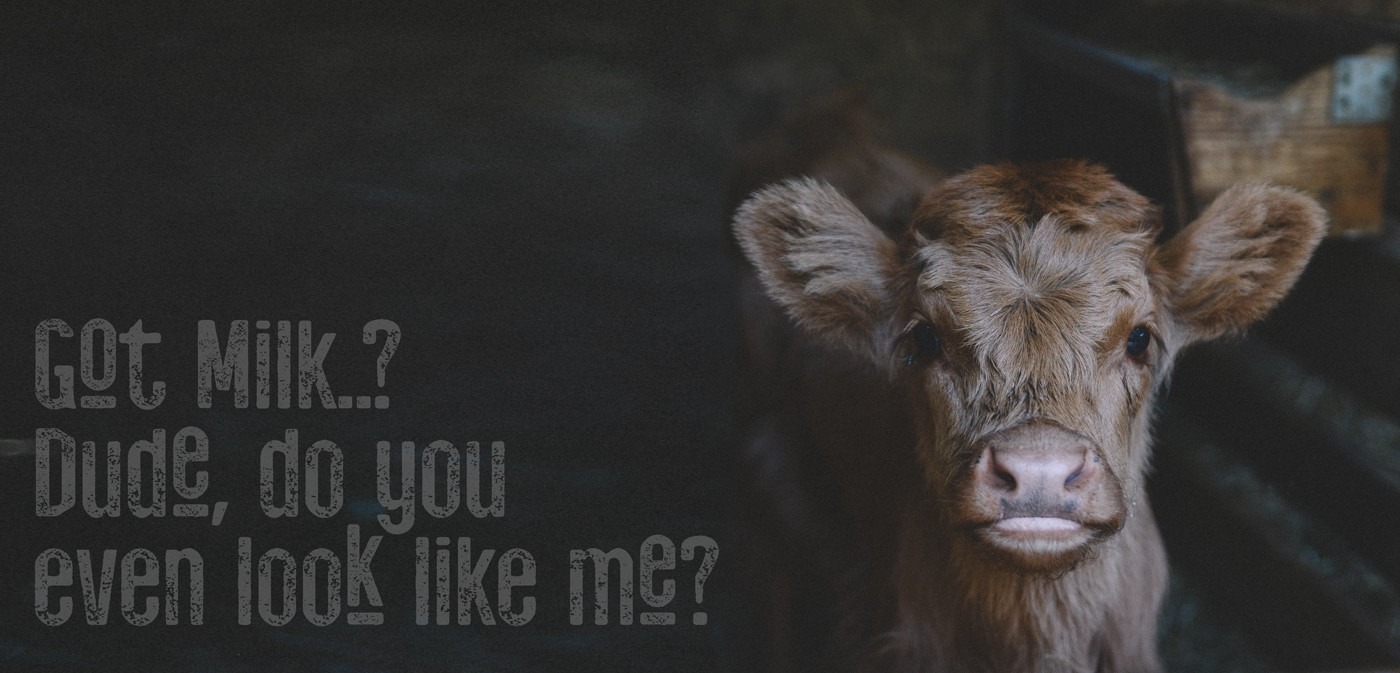
WHAT’S THE BEEF WITH SOY? | DEBUNKING SOY MYTHS
Meat-eaters seem to have an issue with soy.
Tofu, tempeh, soy milk, soy ice cream — whatever form it comes in, they’ll have something to say about it.
Latching onto tenuous facts, expounding upon disproven rumors and proliferating statistics to favor their own cause, carnivores continue to feed the belief that soy is bad.
The multitude of reasons ranges from causing breast cancer to causing breasts in men, the destruction of the rainforests to the destruction of our bone density and many more. Barely dipping a toe on the ocean of proven research and study, meat-eaters cherry-pick information while remaining tragically myopic to the bigger picture.
So, what is their beef with soy? Is it good or bad, and do any of these rumors actually stand up to the facts? Let’s take a look:
Soy vs. the Rainforest
FACT: Soy is in fact leading to the destruction of the Amazon Rainforest in Brazil. The process diminishes the carbon sponge of old-growth forests and releases more CO₂ into the atmosphere.
TRUTH: Only six percent of soy grown is used in human food and beverage products, with 24 percent converted into soybean oil. And the remaining lion’s share? Over 70 percent of all soy grown, particularly in the Amazon, is used to feed livestock for the meat industry [1].
If anyone is to blame for fueling soy’s destruction of rainforests, it is meat-eaters.

Soy vs. Boobs
FACT: For women — and a far lesser percentage of men — hormone imbalance can lead to breast cancer. Isoflavone — an estrogen-like compound — can be readily found in soy-based products, leading many to believe that this can elevate human estrogen levels, thereby increasing breast cancer risk, or much less seriously, ‘man-boobs’.
TRUTH: Raised estrogen levels can indeed have many negative effects, some of them potentially fatal, but isoflavones won’t cause this to happen. Though biologically similar, Isoflavones act very differently in our bodies, failing to bond to the estrogen receptor and negating any risk.
Some studies have even shown soy to decrease the risk of some cancers [2].

Soy vs. Bones
FACT: Reduced levels of calcium intake can lead to weaker bones, osteoporosis and other medical issues.
TRUTH: Yes, this is true, but replacing dairy milk for soy is not going to cause it, actually quite the opposite.
Without diving into the calcium debate — which you can find here — dairy milk is not a good way to build or maintain healthy, strong bones. Soy milk contains the same level of calcium as dairy milk, but can often be more assimilable. Aside from this, it is now being widely suggested that magnesium is similarly beneficial for healthy bones.
The isoflavones, so feared for their fictitious effeminizing effects, actually bond to bone cells, leading to increased bone density.
A study of women fed an equivalent amount of isoflavones from either soy or animal sources showed the study’s carnivores had significantly lower bone density by the end of the trial [3].

Soy vs. Babies
FACT: From pregnancy to postpartum and breastfeeding ‘real’ milk is, in many ways, the best solution for babies.
TRUTH: Breastfeeding is nature’s way of providing babies with essential nutrients for development. Colostrum, the thick, yellowy milk all mammal mothers produce in the first weeks after birth, is incredibly nutritious and beneficial in many ways, particularly in early development and immune defence.
However, human babies aren’t going to get these benefits from processed, refined milk or formula.
Not only does the processing dairy milk remove most of its beneficial properties but — surprise, surprise — human babies aren’t cows!
Studies of adults between the ages of 20 and 34 who were fed soy formula as infants showed absolutely no effect whatsoever on their overall health and development [2].

Soy vs. GMOs
FACT: Most soy is a GMO (genetically-modified organism). GMOs might be bad for your health.
TRUTH: Yes, as much as 80 percent of soy crops are GMO [3]. Genetic modification allows for far better pest control, but it may also deplete the nutritional value of some foods. This doesn’t mean GMOs are bad, just that they aren’t as good as they could be and, as this is usually true of monocrops, can be detrimental to environmental health by association.
However, while altering the genetic makeup of our food instills fear in us and may theoretically be assumed as harmful, no evidence has conclusively proven that GMOs are bad for our health [4].
So sure, GMO soy exists, and in the majority of production, and it may be less nutritious than organic, non-GMO soy, but that doesn’t make it bad.
Added to this, many soy products are clearly labelled as non-GMO, and over 85% of all genetically modified soy products are used for animal feed, so any suspected detrimental effects are more likely to be displayed in the animals or, ironically, the people who eat them.

Soy vs. Protein
FACT: Soy has a different protein make-up so doesn’t benefit us in the same way as meat or dairy protein. Most plants aren’t ‘complete’ proteins.
TRUTH: There are 20 different types of amino acid used for protein production, nine of which are deemed ‘essential’. When something contains all nine of these essential amino acids it is considered a ‘complete’ protein.
Very few vegetables are complete proteins, but soy is one of the ones that is. With comparable protein levels to cow’s milk with none of the health risks associated with cholesterol and dairy, soy milk is a better alternative.
Tofu has a higher level of protein per serve when compared to most meats.
It is cleaner, healthier, cholesterol-free and more easily digested, making it more beneficial for the most part, certainly in terms of protein [5].
Soy’s Achilles Heel is its lack of vitamin B12, an essential nutrient almost exclusively found in meat, but very easily supplemented with tablets. (*note: it’s always worthwhile keeping an eye on your B12 levels. Ask your doctor for a general blood test — highlighting that you’re plant-based and wish to check iron and B12 — at least once a year).

The Benefits of Soy
Environmentally, less land use, less emissions and less water use are among the many benefits of replacing meat with soy. For the animals, well, let’s just say they’d thank you if they could!
For your health, soy outweighs its animal peers in almost every comparison. Added to that, soy has been shown to possibly reduce heart disease, cholesterol, blood pressure, blood sugar and risk of cancer, while improving bone health and fertility in women.
As with so many foods, there are good and bad soys. Most of the bad stuff is used in animal agriculture and, of the small remainder, the negatives are far outweighed by the positives and are almost categorically an improvement on the meat alternatives.
Opting for organic, non-GMO soy with minimal additives such as salt and sugar is always best, and also incredibly easy, with so many options available. As always, avoid the highly-processed products to receive the greatest benefits from soy.
With so many positives and so few downsides, it seems like the only beef with soy is that it’s so much better than meat that the animal agriculture industry is running scared!
[1] https://www.onegreenplanet.org/environment/why-tofu-consumption-is-not-responsible-for-soy-related-deforestation/
[2] https://www.healthline.com/nutrition/is-soy-bad-for-you#concerns
[3] https://newtownnutrition.com.au/10-facts-soy-food/
[4] https://sitn.hms.harvard.edu/flash/2015/will-gmos-hurt-my-body/
[5] https://www.livestrong.com/article/240951-soy-protein-vs-meat-protein/
Article first published on Real Men Eat Plants, May 15, 2021
You May Also Like

ANGUS MCDONALD | FINDING CALLING
August 25, 2020
WOODFORD | THAT OTHER FESTIVAL
May 31, 2015
